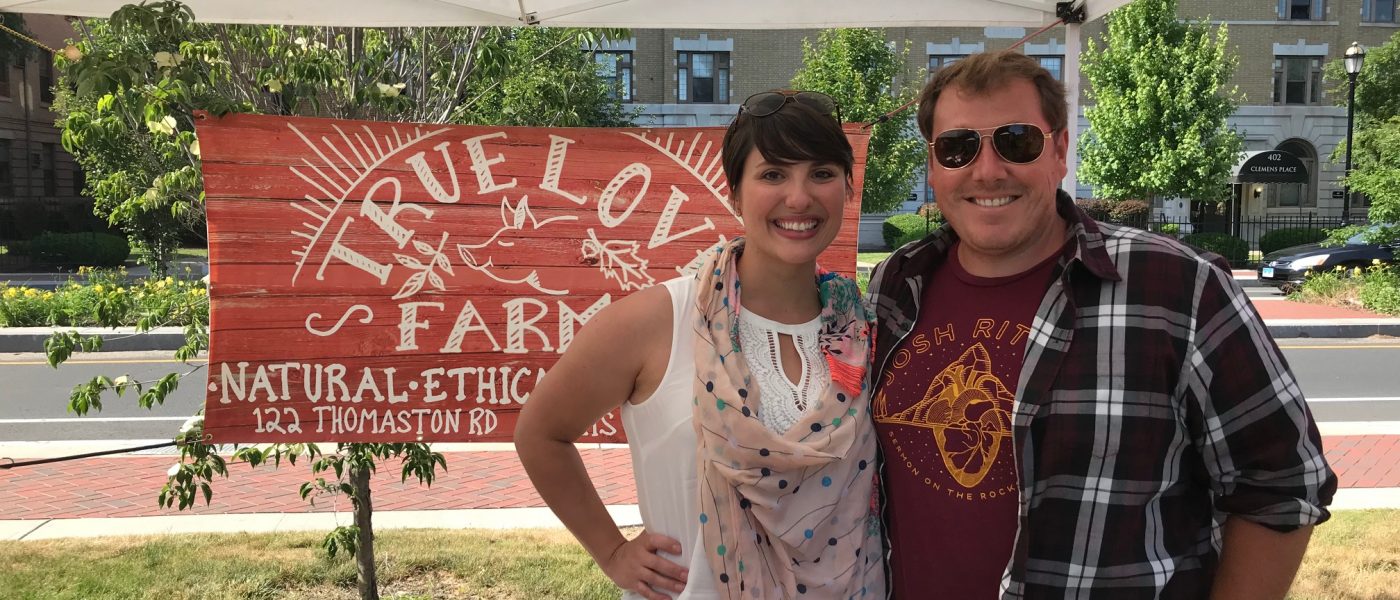A lot has changed for Tom and Alana since the COVID-19 pandemic began. Below is an update where they breakdown the past 18 months in their own words.
2020 was an incredibly impactful year for Truelove Farms. That spring we were confronted not just with the arrival of Covid, but also with the news that the farmland we had leased for ten years would be going up for sale. The instability surrounding that impending sale, and the difficulties caused by Covid (both on our retail business and in the infrastructure required to run a livestock operation) made us reevaluate our future and decide that continuing to farm full time – and our regular scale – wasn’t right for us.
The birth of our first child, our daughter, and the purchase of a small acreage near the farm changed our priorities. We realized our family would be better served if we focused on a smaller, homestead scale of farming to feed ourselves, our friends, and our family; as was the idea of our daughter growing up around animals and agriculture. But the prospect of relocating our full operation to more rented land in the midst of a pandemic seemed insurmountable. It was a bittersweet decision, but the right one.
We’ve spent the last year and half scaling down, selling off equipment and stock, and moving parts of our operation (like our three Great Pyrenees guard dogs) to our permanent homestead. As we transition, we’ve refocused on our farm store by offering not just our own products for sale, but those of a number of local farms and businesses. This has allowed us to still offer our more limited variety of products in addition to other delicious offerings, and also to still remain involved with the local agricultural community.
That involvement has extended to our continued support for mental health awareness amongst farmers. Farm Aid 2018 was the first time we spoke publicly about the intersection of our two lines of work: farming and psychotherapy; it launched us more directly into work around the incredibly important yet under-discussed topic of farmers’ mental health. In the years that have passed we’ve surveyed local farmers about their mental health needs, provided education and training to farmers and clinicians alike, and partnered with others advocating for increased mental health services to meet the unique needs of farmers. Though our role as farmers ourselves is diminishing, we continue to believe in the vital importance of helping that community, and hope to do so for as long as there is a need.
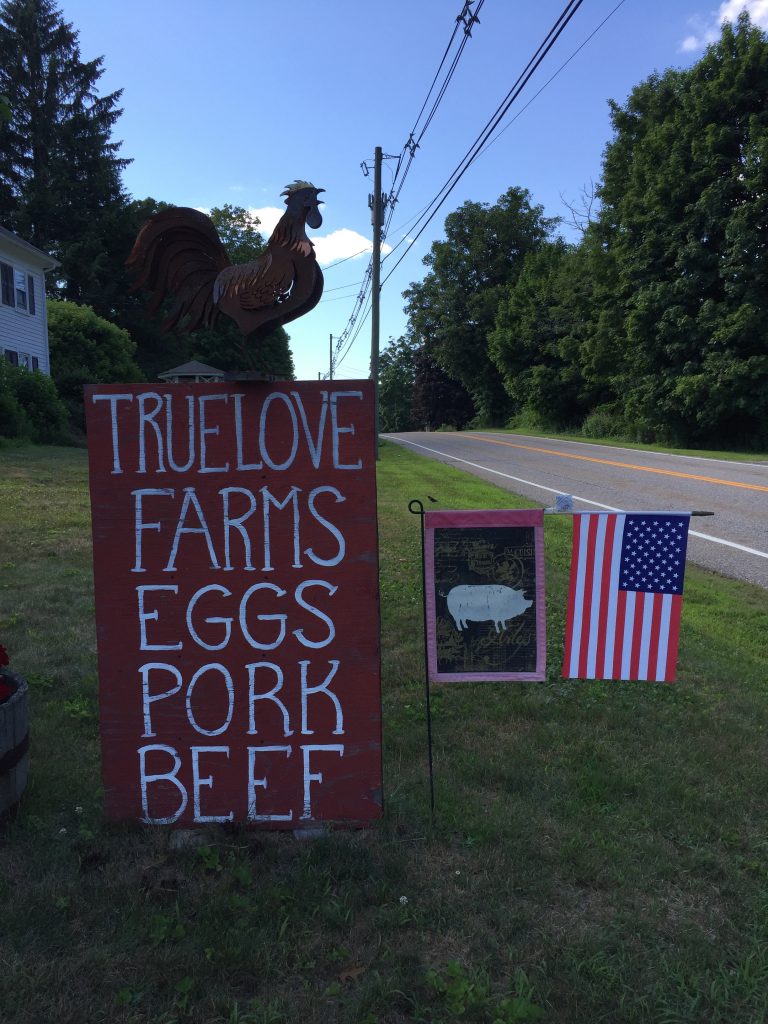
Read our original post from 2018 below.
“I’m the first livestock.” These are the bold, inspiring—and perhaps taken out of context, confusing—words that Tom Truelove lives by. Tom is a 37-year-old farmer who figured out pretty early on that “if I can’t take care of myself and make sure that I’m happy, then everything is going to crumble.”
Nine years ago, Tom leased some land that had agricultural origins dating back to the mid 1700’s in Morris, CT, picked up four pigs, a couple of cattle and some chickens, and started Truelove Farms. His grandparents were dairy farmers, so farming wasn’t completely alien to him, but he didn’t have any practical farming experience. “After the financial meltdown in 2008, a lot of my friends who thought they had firm trajectories in life, didn’t feel so secure, so I felt it was a good time to take a risk,” he says. Tom started small, and learned by making mistakes.
Most of Truelove Farms’ 110 acres is wetland and forest, which may sound inoperative. However, Tom, who refers to the domestic pig as a “creature of the forest,” conducts business as usual a little differently than most by raising his animals 100% outdoors. His pigs, for instance, thrive in the forest where they can root around, eating fallen nuts and earthworms, while at the same time improving the quality of the area’s soil. “That’s how they were raised for thousands of years—in a semi-feral state, allowed to roam, and then herded up at the slaughtering time of the year,” explains Tom. He takes a lot of pride in his animals, treating them with the upmost respect.
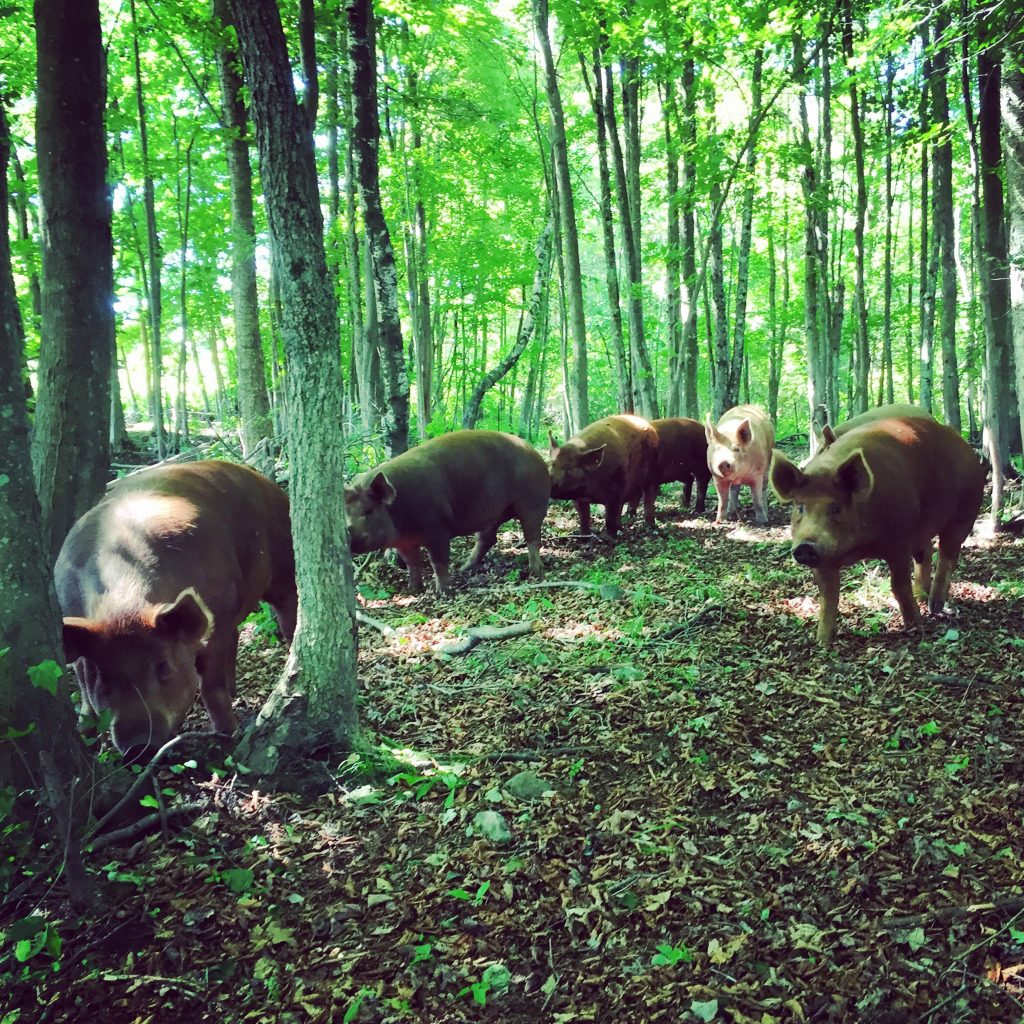
“Tom has always gotten along better with animals than people,” chimes in his witty wife, Alana, who is not a farmer, but a psychotherapist. She started out as one of Tom’s customers (“I came to the farm by way of bacon”) and now acts as his main support system. She says, though she’s there on weekends to help at the market and in “middle of the night when the cows get out,” her most important role is to listen and offer support.
“I think that if we can let farmers know ‘You’re not doing anyone any favors by trying to tough it out,’ because then things come to a breaking point. You know, if something catastrophic happens—then it’s all for nothing.” ~ Tom
Since getting to know Tom and the farming community, Alana appreciates how the uncertainties that come along with the job weigh heavily on farmers’ mental health. In this profession, the whims of the weather, the volatilities of the market and government policy, as well as consumer decisions all dictate how a farmer will fare financially. When you couple that with a profession that’s isolating and brutally physically, it’s a lot for one person, especially on those days when “you work constantly, all day, until you are bone tired, and have nothing to show for it.” On top of that, farmers don’t always have adequate access to healthcare and mental health providers are few and far between in many rural areas, adding extra layers of difficulty for farmers looking to take care of themselves, both mentally and physically.
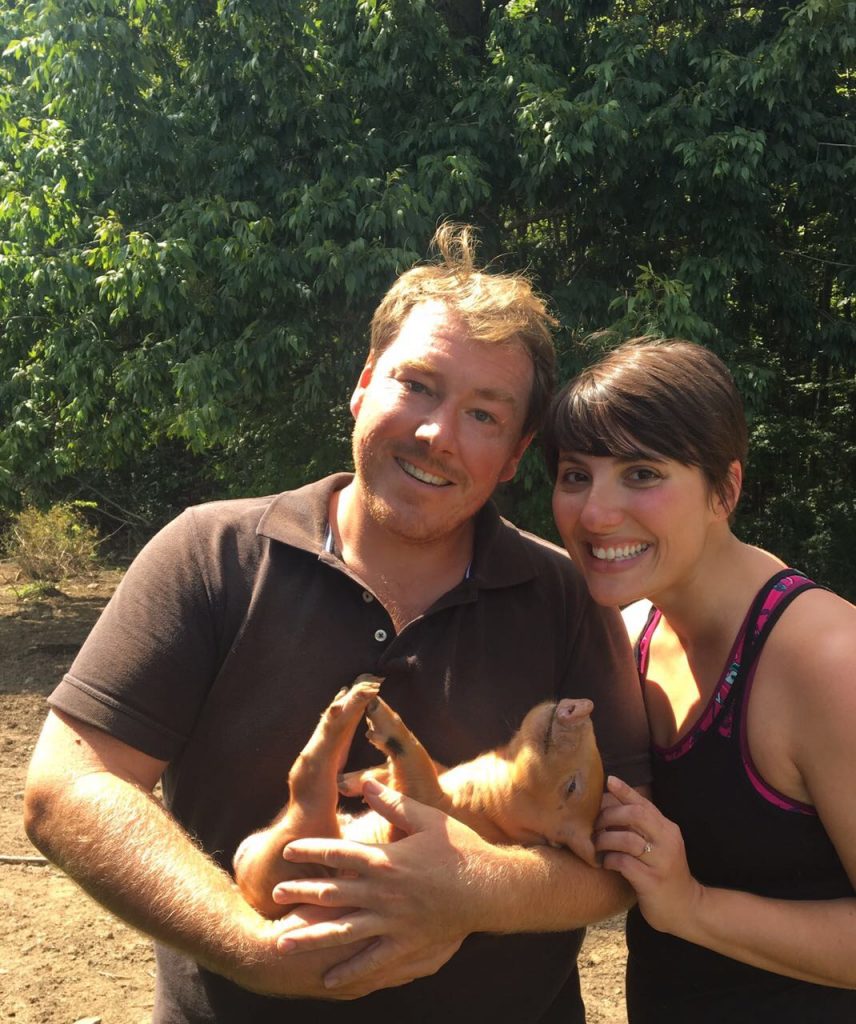
This is why Alana has pushed Tom to practice self-care—a topic that’s in vogue these days, and perhaps, may appear antithetical to a farmer’s lifestyle. Tom admits, “The biggest thing is getting over feeling like you need to work 16 hour days every day. For a long time, I felt like if I wasn’t working like that, I wasn’t a proper farmer.”
So Tom now takes breaks: a lunch with Alana, time to sit and write, a beer in the evening, or even a hike. These things remind him that there’s more to his identity than just “farmer,” no matter how important that part is. And, Alana recommends that Tom shares his struggles. The two text and talk throughout the day, and she reminds him of his “reason for doing this in the first place.”
Making time for self-care can be difficult for many people, but admitting that you need additional help, is often even more challenging. “Once those cracks start to appear…it can be very difficult for farmers to figure out how to ask for help or even figure out that they should be asking for help,” says Tom.

Alana notes this is not unique to farming, but rather the state of our society’s opinion on mental health in general. We’re having trouble connecting mental health to our whole health. She sees this in her day job at a primary care health clinic, where patients come in to meet with their doctor and complain of headaches, a bad cough, and then add in, “Oh, I’ve been crying every day.” It’s difficult for many of us to realize that our emotional challenges are not only legitimate, but also that it’s worth seeking help to manage and address them.
Many farmers come to the Farm Aid hotline to talk about FSA loans, wholesale markets, or land access (to name a few of their challenges), and then inadvertently the conversation turns to how they’re feeling and what else is going on (much like Alana’s primary care example). Some farmers call because they feel a kinship with our Farm Advocates, many of whom are farmers themselves. Alana observed something similar at the Veterans Administration (V.A.), where she has also worked. Veterans who would hesitate to find outside help were willing to talk with a V.A. counselor. “I think this is very similar, farmers seeking support from other people who understand what they’re going through because they’re not going to look down on them and say ‘You should just buck up and get over it.’ They’re going to say ‘Yes, I get that; I hear you; I’ve been there.’”
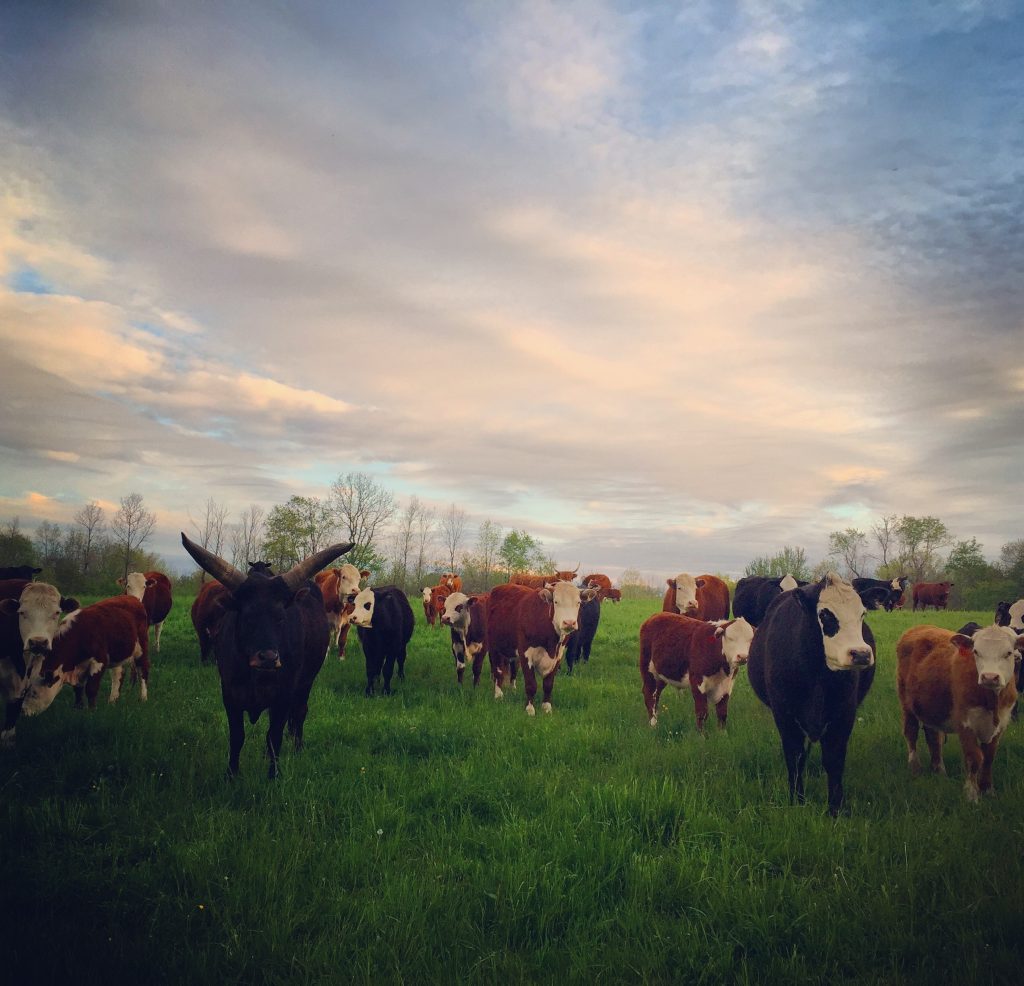
Tom circles back to his theory on being the first livestock, one that’s akin to that oft-repeated line flight attendants utter: put on your oxygen mask first. For Tom, this translates to the idea that he serves the farm just as much as his animals. “The animals that I raise die in order to continue the farm, to continue this piece of land being farmed. And as a farmer, I serve the farm. And, I think that if we can let farmers know ‘You’re not doing anyone any favors by trying to tough it out,’ because then things come to a breaking point. You know, if something catastrophic happens—then it’s all for nothing.”
Alana gives Tom a supportive and affirmative, “Totally,” and they go back to their brief—but vital—self-care lunch together away from the farm.
